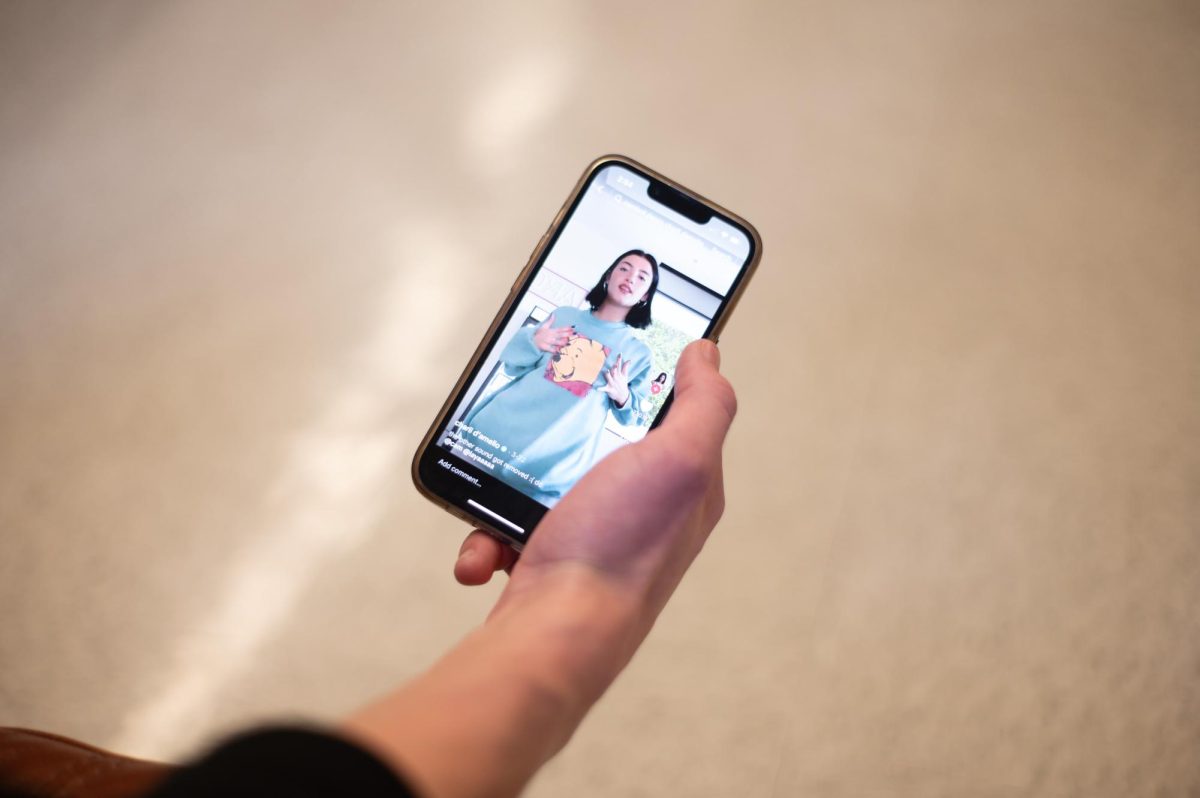TikTok — a Chinese-owned app used by 170 million Americans, including most teens — is probably going away. But it likely won’t happen soon.
On April 24, President Joe Biden signed a law, passed by Congress days earlier, that would ban the app within a year unless sold to a non-Chinese company. The law states that TikTok’s parent company, ByteDance, must sell the company within a year or risk a ban in the United States. While the bill was passed this week, many complications such as finding a buyer and court challenges could add months of delay to the final sale.
For 75% of teens, TikTok is their main social media platform, and a ban would force them to use alternative platforms like Instagram, YouTube, and Snapchat.
Due to Chinese information laws that allow the Chinese government to access data from all American TikTok users, United States lawmakers recognized the platform’s national security threat — something that affects creators and U-High students who use the app for entertainment, news and stress relief.
A study by Business Insider on the social media usage of teens found that teens spend close to two hours a day on TikTok.
TikTok has also been proven to reduce attention spans due to its short-form content that creates high levels of dopamine. A study published by the International Journal of Environmental Research and Public Health suggests that active TikTok users ages 15-18 had a higher chance of memory loss, depression, anxiety and decreased attention span.
Sophomore Julian Rossi feels a potential ban is an example set by the United States government of both America and China’s political interests in ideological security. He feels that banning TikTok in the United States also shows technological protectionism by adversely promoting American based media.
“I think that banning TikTok is an example of the United States trying to exert its hegemonic dominance in the technological sector due to the increasingly multi-polar international landscape,” Julian said. “But, there is a real concern with the anti-China policies that have been floating around the U.S. government after Trump’s trade war with China due to China’s increasingly aggressive stance against the United States.”
Sophomore Jack Spiotto uses TikTok as an outlet to de-stress from the tense environment of school and other extracurricular activities. He feels that creators he watches would be negatively affected by the pending ban.
“I love TikTok. I use it basically every day,” Jack said. “I feel like banning it would just force creators to abandon their livelihood and source of income.”
This is a real issue for the more than 7 million American residents who make money from TikTok’s growing creator fund, according to Oxford Economics. Banning TikTok would force these creators to move to platforms such as Instagram or YouTube, where creators may have a smaller fan base or may not be monetized at all.
History teacher Cindy Jurrison feels the issue of TikTok is the amount of time students spend on the platform due to its addictive algorithm and the negative mental impacts it has on them compared to the data the platform collects.
Dr. Jurrison acknowledges that every nation can claim sovereignty over what happens inside their borders, such as the use of social media platforms, and can make decisions based on their interests. But, other factors may be in play due to the United States’ increasingly aggressive stance toward media that can be influenced by other countries.
“I think there may be some biases towards the Chinese in a national security way, as there should be,” Dr. Jurrison said. “The level of Russian interference in our elections through disinformation on social media platforms is stunning.”
While she believes students will be affected in the short term if the platform is banned, she encourages students to remember that TikTok is not what defines them as a person and it should just be treated as any other type of entertainment.
Dr. Jurrison said, “No one ever on their deathbed says to themselves, ‘I wish I had spent more time on TikTok.’”






















































